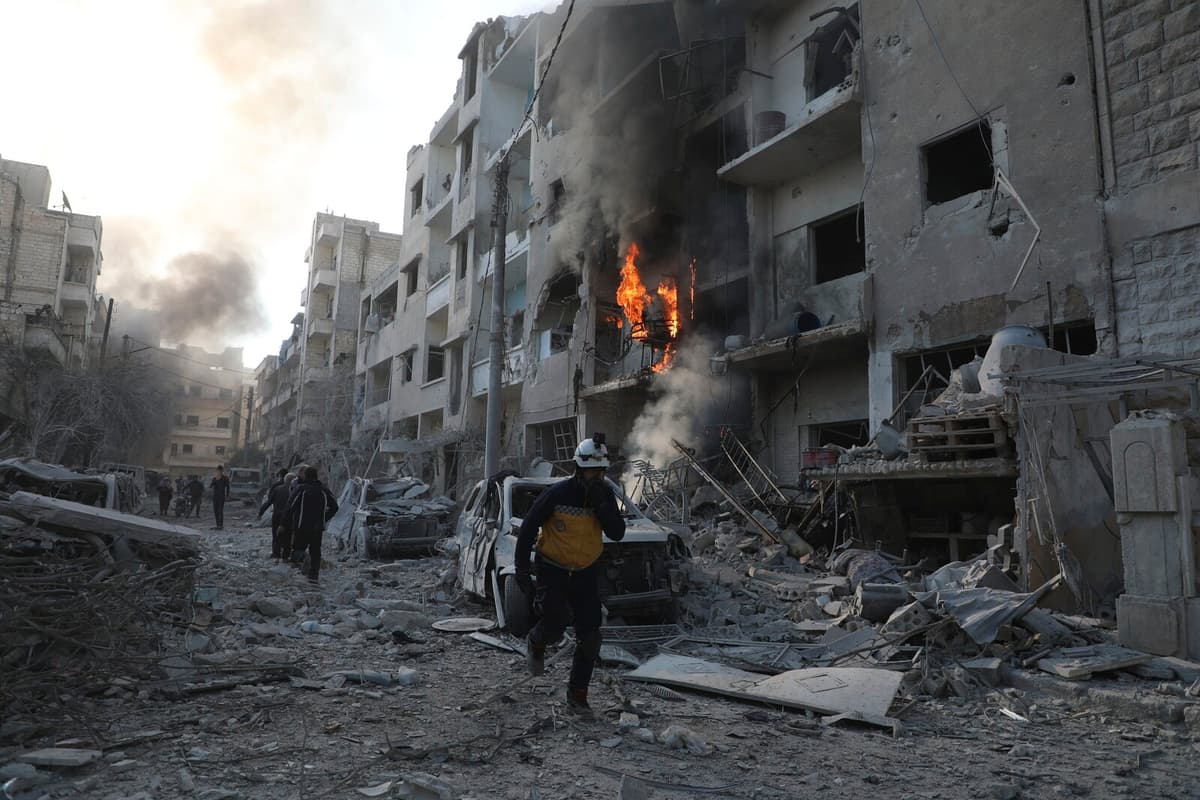The air strikes were directed at several areas in the northwestern part of the country, including the city of Idlib and a refugee camp, according to the UK-based and oppositional conflict monitor Syrian Observatory for Human Rights (SOHR).
At least eleven civilians were killed, including several children, according to the reports.
In an attack carried out by rebel forces against a quarter in the city of Hama, six civilians were killed, according to SOHR.
During the sudden offensive in northern Syria, at least 514 people have been killed, according to SOHR's compilation. More than 90 of them were civilians.
Established a Defense
Rebel forces took control of the war-torn city of Aleppo over the weekend, after launching an offensive on Wednesday and engaging in intense battles against government forces loyal to Bashar al-Assad's regime.
The advancing rebel forces come from a diverse composition of resistance groups – jihadists and extremists, as well as more moderate groups supported by Turkey – who have controlled an area in northwestern Syria.
Assad's army has sent reinforcements north and claims to have established a "strong defense line" in the Hama province south of Aleppo. According to reports, they have also received reinforcements from Iraqi Shia militias and Iranian soldiers.
"Want to Redraw the Map"
The Syrian president describes the offensive as a "terror escalation" in line with a larger conspiracy, where he accuses the US and Western countries of wanting to "redraw the map" in the Middle East.
Hardline Bashar al-Assad remains in power after many years of civil war, where around half a million people have lost their lives, largely thanks to military backing from Russia, as well as Iran and Shia militias in the region. Currently, his allies are however occupied elsewhere or weakened.
Calling for Peace
The Kurdish forces controlling a larger area in northeastern Syria, with support primarily from the US, say they are working to evacuate Kurds who are in Aleppo and its surroundings.
The US, France, Germany, and the UK are calling for a de-escalation of the conflict in Syria in a joint statement.
China's Foreign Ministry announces that the country supports the Syrian government in its efforts to "maintain national security and stability". The countries entered into a "strategic partnership" last year.
Syria's President Bashar al-Assad remains in power after the devastating civil war, which was triggered by the Arab Spring in 2011, has ravaged large parts of the country. al-Assad has continued support from Russia, Iran, and Shia militias in the region. Currently, his allies are however largely occupied in other wars and conflicts.
The wars just west, in Gaza and Lebanon, have in some way spilled over into Syria as Israel has stepped up airstrikes against targets in Syria.
The Assad regime has limited control over Syrian territory, as Kurdish forces maintain self-rule in the northeast and another collection of rebel forces hold areas in the north and northwest, largely with support from Turkey.
Aleppo was Syria's largest city before the outbreak of war in 2011, but in a long and bloody siege, large parts of it were reduced to ruins by indiscriminate Russian airstrikes. In 2016, government forces regained control of the city, which became a clear turning point in the war.






